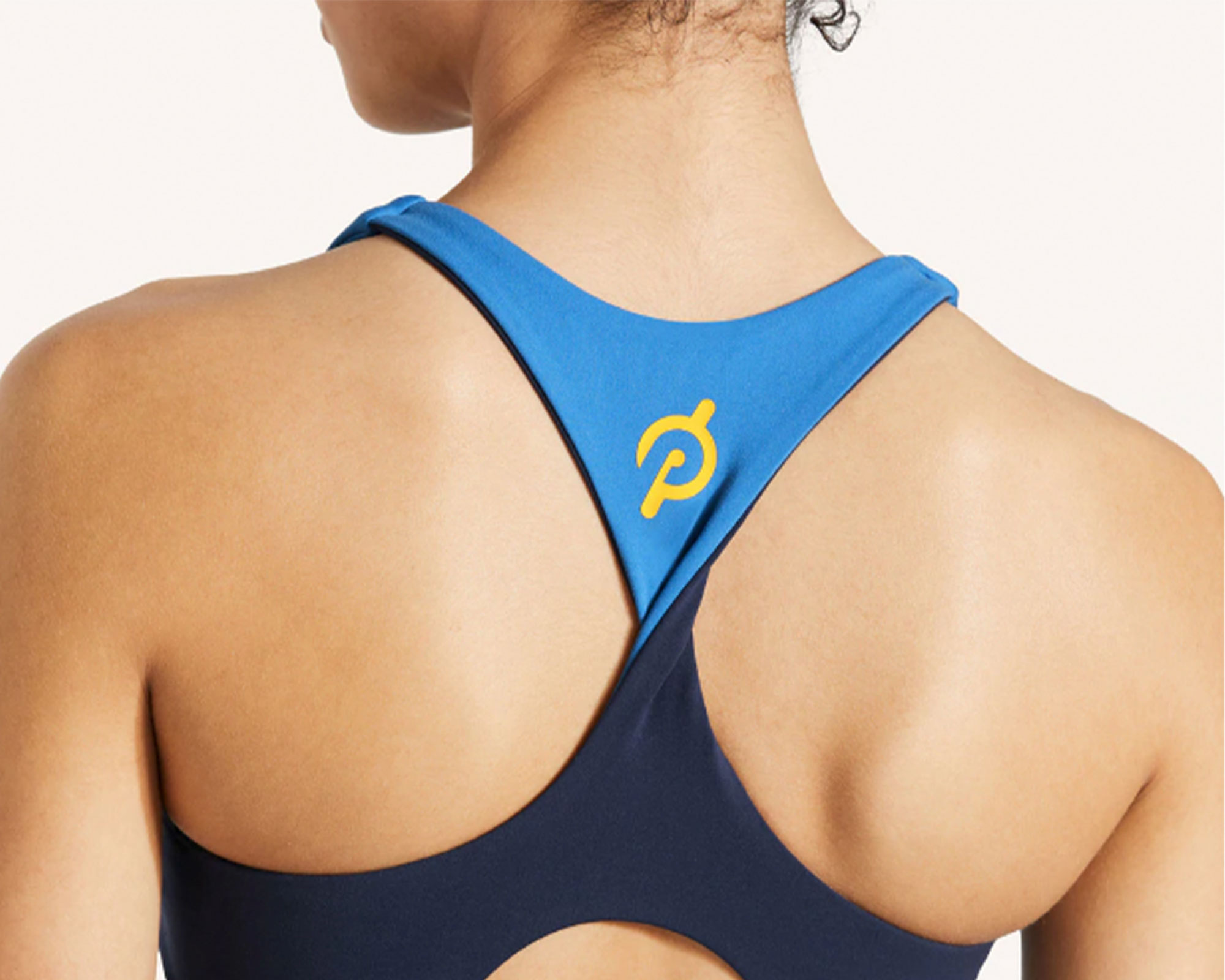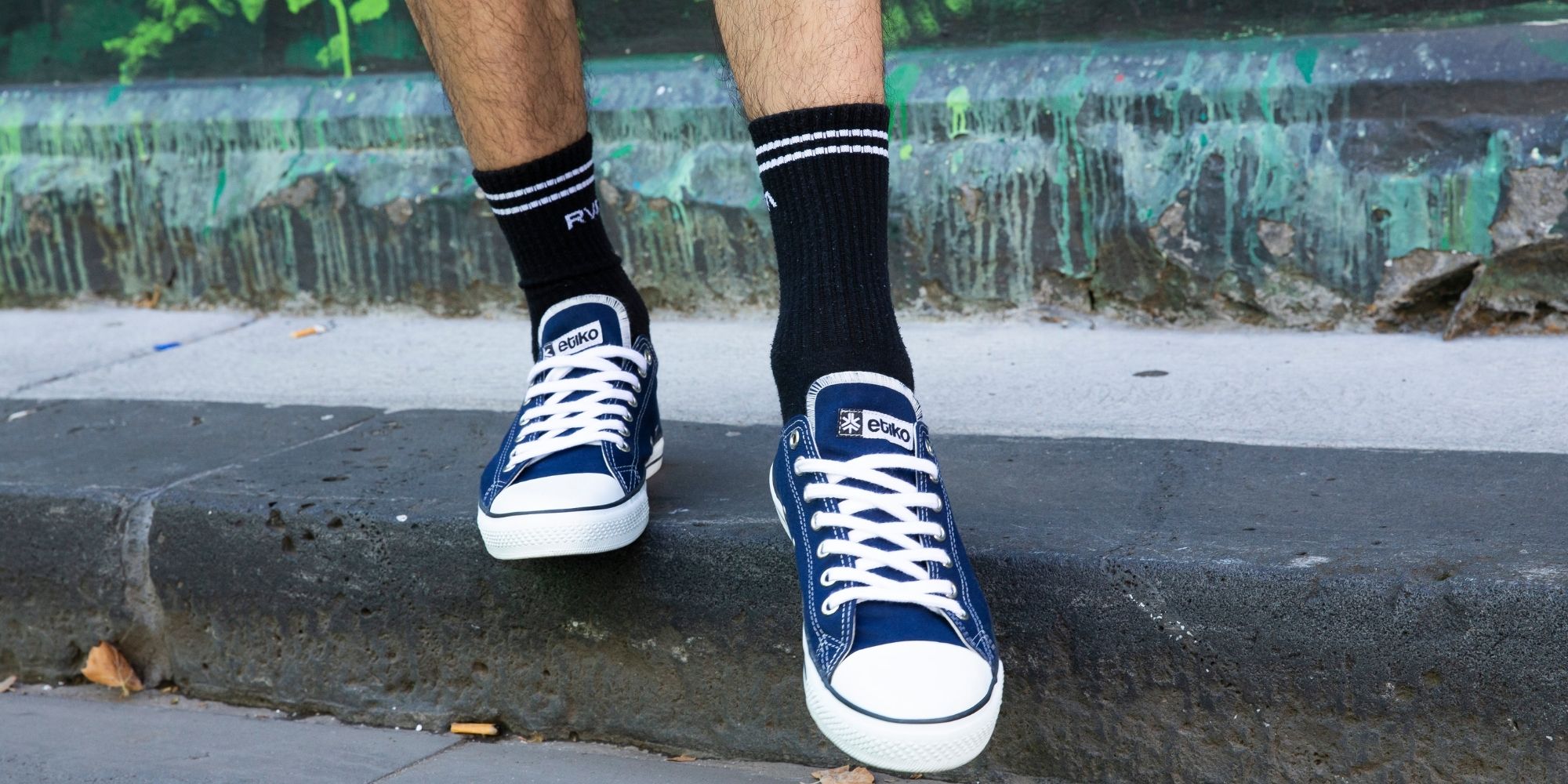Our editors curate highly rated brands that are first assessed by our rigorous ratings system. Buying through our links may earn us a commission—supporting the work we do. Learn more.
From stationary exercise bikes and treadmills to technical activewear, Peloton has made its mark on the fitness industry. We decided to investigate the brand’s apparel collection to see how its practices stack up in our ratings methodology, and the results are in.
Peloton Apparel is not keeping pace on sustainability
You might know Peloton as the stationary exercise bike and treadmill brand that caused the shocking demise of a certain character in the “Sex And the City” reboot “And Just Like That…”, but did you know it also has its own line of active apparel?
Despite existing to improve fitness and wellbeing, Peloton’s clothing line may not be as good for our health and the planet’s health as one might think. With a range boasting technical blended fabrics with fancy names like “Cadent”, “Agility”, and “Striving”, made almost exclusively from harmful plastic-based materials like virgin polyester, nylon, elastane, and spandex, we’re not sure Peloton Apparel got the memo.
Let’s take a closer look at Peloton Apparel’s rating and answer the question: how ethical is Peloton?
Environmental impact
Unsurprisingly for a brand that pumps out polyester blends on the reg, Peloton Apparel scores rock bottom with “Very Poor” for the planet. It doesn’t use eco-friendly materials or minimise textile waste, nor does it seem to be taking any action to reduce its carbon and GHG emissions or eliminate hazardous chemicals in its supply chain. Hazardous, indeed.
Labour conditions
Peloton Apparel’s DEI and anti-racism campaign slogan insists “‘Together we go far’ means all of us can’t win if some of us are being held back”. But is the brand ensuring the workers in its supply chain can “go far” by, say, being paid a living wage?
Sadly not. There is no evidence Peloton Apparel has a Code of Conduct; worker empowerment initiatives such as collective bargaining or rights to make a complaint; or any safeguards to protect suppliers and workers in its supply chain from the impacts of COVID-19. While it does trace some of its supply chain, its lack of living wage information is a massive red flag.
While we commend its starting efforts on diversity and inclusion—a crucial step towards a more ethical workforce—we can’t help but question the brand’s integrity here. It isn’t clear in the “Peloton Pledge” whether these efforts extend throughout the supply chain, which is part of the problem. In order to comprehensively address inequality in the industry and foster resilient and adaptable supply chains, companies must work to ensure their policies extend further than mid- or high-level employees. “Very Poor” for people, too.
Animal welfare
Peloton gets a bit of a boost for animals with a rating of “It’s a Start”, mainly owing to the lack of animal-based fabrics in its range. It still uses wool and exotic animal hair, though, and there is no evidence that it has a policy to minimise animal suffering in that particular part of its supply chain.
Overall rating: We Avoid
So, how sustainable and ethical is Peloton? Overall, we had to give Peloton our lowest score of “We Avoid” due to its lack of substantial action for people, the planet, and animals. Peloton could improve its score if it considered the health and wellbeing of the environment and the workers in its supply chain by incorporating more sustainable fabrics and ensuring payment of a living wage.
Note that Good On You ratings consider hundreds of issues, and it is not possible to list every relevant issue in a summary of the brand’s performance. For more information, see our How We Rate page and our FAQs.
Disappointed by Peloton’s rating? Don’t fret: there are a whole host of more ethical and sustainable “Good” and “Great” activewear brands at comparable price points (but incomparable ratings).
Good swaps
“Good” and “Great” rated alternatives to Peloton



























